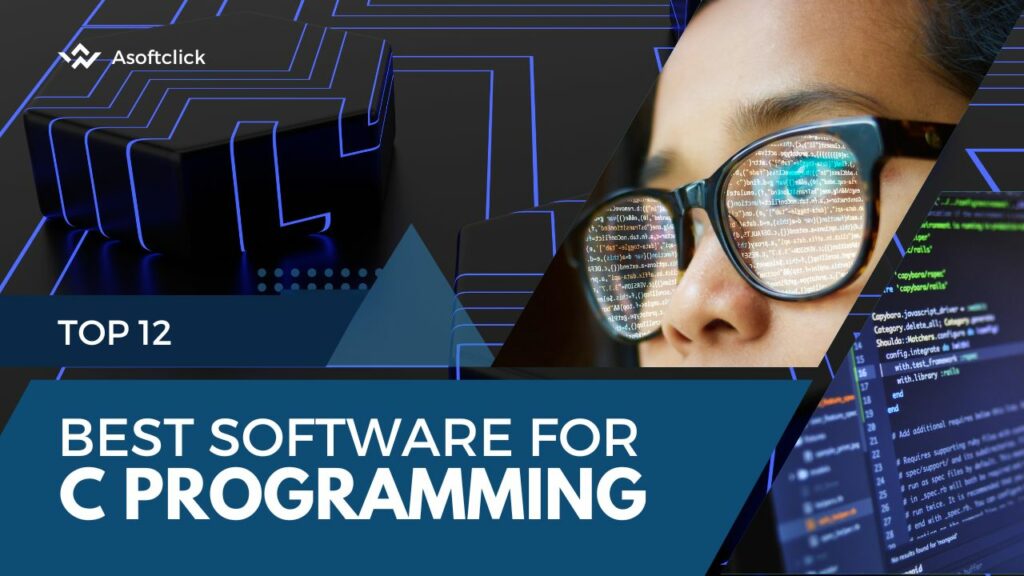 Programming has become an indispensable aspect of our lives. As technology enthusiasts, it’s common knowledge that the world of programming is vast and diverse, offering a plethora of languages to choose from. Thus, the programming language ‘C’ has consistently been popular among software developers.
Programming has become an indispensable aspect of our lives. As technology enthusiasts, it’s common knowledge that the world of programming is vast and diverse, offering a plethora of languages to choose from. Thus, the programming language ‘C’ has consistently been popular among software developers.
C and C++ are widely regarded as the foundational programming languages for countless developers worldwide. Even in modern times, these two languages remain the top recommendations for aspiring programmers looking to take their first steps into coding. C programming language is a fundamental building block for numerous modern programming languages developers utilize today. The C++ is an extension of the popular programming language C, offering a range of additional features while retaining its core functionality. C is a subset of C++, which makes it an essential tool for developers. The syntax and code structure of both languages are identical.
In this entry on our blog, we have compiled a selection of the best software for C programming that works well.
You can also check: Certify Your Success: 8 Best Software Engineering Certifications
What are Integrated Development Environments?
An Integrated Development Environment (IDE) is a software application programmers use for coding. A programming environment is a crucial tool for software developers, as it offers a wide range of comprehensive features essential for software development. These features enable programmers to code quickly and efficiently, creating high-quality software. IDEs provide a fast and efficient setup process and a wide range of tools to improve productivity significantly. With an IDE, developers can streamline their workflow and focus on writing code rather than worrying about the setup and configuration of their development environment. Additionally, IDEs provide a range of features, such as code completion, debugging, and version control, which can help developers write better code in less time. IDEs are essential for any programmer or developer looking to improve productivity and streamline workflow.
An Integrated Development Environment (IDE) comprises three essential components: a source code editor, a build automation tool (compiler), and a debugger. These components work together seamlessly to provide developers with a comprehensive platform for coding, testing, and debugging their software applications.
Best Software for C Programming
In light of the increasing popularity and diverse applications of the C and C++ programming languages, we will be delving into the top IDEs available for these languages. The integrated development environments (IDEs) listed below offer support for C/C++ and a range of other programming languages.
1. Visual Studio Code
![]()
Microsoft has developed an open-source code editor compatible with Windows, Linux, and Mac OS. Visual Studio Code is a code editor built on the Electron framework. In addition, this integrated development environment (IDE) boasts a high degree of customizability, enabling programmers to modify the theme, keyword shortcuts, and preferences to suit their needs.
Visual Studio is a versatile Integrated Development Environment (IDE) that supports various programming languages. In addition to popular languages such as C/C++ and C#, the platform boasts support for other languages like JavaScript, TypeScript, and XML. Furthermore, developers can leverage plugins to extend the IDE’s capabilities to include languages such as Python and Ruby. Visual Studio offers three editions: Community, Professional, and Enterprise. The Community Edition is complimentary, while the other two require payment. Visual Studio offers several editions for those seeking a reliable C/C++ integrated development environment (IDE). Give them a try and choose the one that best suits your needs.
2. Code:: Blocks
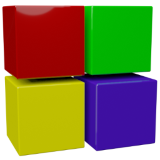
Code::Blocks is a cutting-edge open-source Integrated Development Environment (IDE) for C/C++. It is built using wxWidgets, a powerful and versatile GUI toolkit, and is coded in C++. Code::Blocks is a comprehensive Integrated Development Environment (IDE) that caters to the needs of C and C++ developers. It offers many prominent features essential for the development process, including syntax highlighting, a tabbed interface, code completion, code coverage, easy navigation, and debugging support. Moreover, this feature enables users to specify complete breakpoint conditions, which can halt the execution of the code when they meet the requirements. It is worth noting that the source code of the Code::Blocks IDE is accessible, allowing users to customize the C/C++ Integrated Development Environment. In addition to utilizing Code::Blocks, users can debug the source code or devise novel features to contribute to the Code::Blocks community.
3. Eclipse
Eclipse is a well-known and highly regarded Integrated Development Environments (IDEs) name. The IDE in question has a reputation for its outstanding Java support. However, it cemented its position as a valuable C and C++ development tool.
For C/C++ developers, this software offers many handy features, including code auto-completion, code refactoring, visual debugging tools, remote system explorer, and more. In addition, the Eclipse Integrated Development Environment (IDE) can be enhanced by integrating various external plugins to cater to your unique requirements.
4. Sublime Text
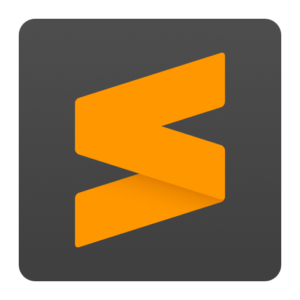
This versatile source code editor is cross-platform and boasts support for multiple programming languages, including markup languages. Sublime Text boasts impressive features, including Python application programming and a sleek user interface, all while delivering exceptional performance. Community-built plugins offer programmers the ability to integrate additional functions into their projects.
5. CodeLite

This IDE is a noteworthy option for those seeking a reliable C or C++ programming platform. It is an open-source solution that boasts cross-platform compatibility, supporting popular operating systems such as Windows, Linux, and Mac OS X. The venue boasts exceptional compiler support and allows users to gain deeper insights into errors with just a single click. Codelite offers seamless integration with cscope – a powerful text-based interface for searching code. This tool provides an intuitive tree view feature that lets users quickly locate files.
6. NetBeans
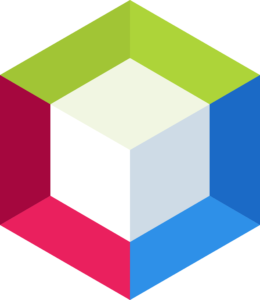
This IDE is a popular choice among developers due to its versatility, as it can seamlessly operate on various operating systems, including Windows, Linux, Mac OS X, and Solaris. This Java-based IDE is both open-source and free to use. It has a user-friendly interface incorporating a drag-and-drop functionality and many project templates for added convenience. NetBeans supports the creation of C/C++ applications featuring both dynamic and static libraries. This software tool empowers developers to generate C/C++ applications using pre-existing code.
Furthermore, it offers excellent resources for developers proficient in C/C++.The C program analysis tool can enhance your coding experience by providing a feature that highlights variables and keywords in your code. Netbeans IDE offers pre-built templates to facilitate the process of writing C code.
7. Qt Creator
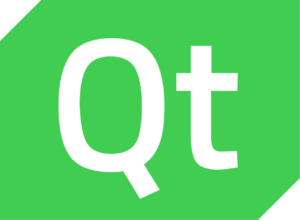
Qt Creator is a robust integrated development environment (IDE) that offers many advanced features to enhance your coding experience. With Qt Creator, you can use features like code completion, syntax highlighting, refactoring, built-in documentation, and more. These features can streamline your workflow and help you write better code in less time. The advanced code editor of this software enables users to code in C++ and supports various other programming languages, such as JavaScript and Python. Qt boasts seamless integration with popular version control systems like Git, Subversion, and Mercurial, making it a top choice for developers seeking a versatile cross-platform deployment solution.
8. CodeWarrior
NXP Semiconductors recently released CodeWarrior, a comprehensive software development tool enabling users to edit, compile, and debug code easily. The Integrated Development Environment (IDE) is a versatile tool that can operate on Windows and Linux operating systems. It streamlines even the most intricate tasks, rendering a developer’s work effortless and straightforward.
9. PlatformIO
The PlatformIO tool boasts an impressive range of compatibility, with support for over 200 embedded boards. It is cross-platform and compatible with Windows, Linux, and Mac operating systems. The software boasts a versatile interface that accommodates dark and light color themes. Additionally, it features a sophisticated search function that enables users to quickly locate specific keywords, headers, and other relevant information.
10. KDevelop
![]()
K Develop is an open-source Integrated Development Environment (IDE) that provides a comprehensive platform for writing C programs. This technology empowers developers to collaborate on projects of varying scales. This software solution can enhance the overall quality of your code. The software allows users to personalize their color schemes and create custom shortcuts to streamline their workflow.
11. GNAT Programming Studio
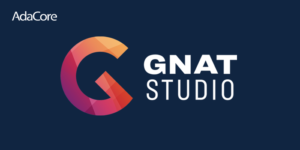
GNAT Programming Studio is a cutting-edge Integrated Development Environment (IDE) readily accessible to users at no cost. It is a software development tool that streamlines the communication between developers and their software. It boasts a user-friendly GPS that simplifies the development process. This software offers top-tier assistance for programming languages such as Ada, SPARK, C, C++, and Python.
12. Apache Arrow
Apache Arrow is a cutting-edge software framework that enables the development of high-performance applications in the C programming language. The code highlighting feature is available in this application. The platform boasts compatibility with various popular programming languages commonly used in the industry. The tool is for streamlined analytics operations on contemporary hardware.
The software is compatible with various operating systems, including Linux, Windows, and macOS.
What can you do in C?
C Programming Language: Practical Applications
- Real-time and embedded programming
- Programming for GUIs (using GTK, Nuklear, NAppGui, and RayGui)
- Programming using Berkeley Sockets
- Programming for IoT networks using ZeroMQ, RabbitMQ, libcurl, Paho MQTT client, and nanomsg
- Interacting with databases (including Postgresql, SQLite, MariaDB, MongoDB, and others).
- Web servers (onion, libmicrohttpd, Kore, facil) and web frameworks
- Graphics (CSFML, OpenGL, SDL, and RayLib)
- Command-line programs
- Tools with a graphical command-line interface (ncurses, not curses)
- Plotting and scientific computing (GSL, GnuPlot, FFTW, apophenia, libBlas, ATLAS, and more)
- Artificial intelligence (FANN, DarkNET).
- Cryptography (libsodium, openSSL)
- File processing (Libcsv, JsonC)
- Kernel space programming for Linux and BSD (drivers, etc.)
- And a whole lot more
Is C worth learning?
The concepts of C programming language serve as a real inspiration for many other programming languages, including C++ and other syntax-based languages such as C#, Java, PHP, JavaScript, Go, and Rust. Therefore, having a firm grasp of C programming concepts can serve as a solid foundation for learning other programming languages in the future. Acquiring proficiency in C programming language is undoubtedly a valuable investment, serving as a strong foundation for future programming pursuits.
The C programming language has a relatively gentle learning curve for beginners. Even with limited language knowledge, one can create practical programs using it. Mastering programming can be challenging, especially when delving into more advanced concepts like pointers.
Good C programming habits.
Improving your proficiency in C programming requires adopting specific practices that can enhance your effectiveness.
- Write Clear Code. Clear code is easy to read, understand, and maintain, leading to fewer bugs and faster development times.
- Develop a Consistent Style. This means establishing guidelines for typography, color schemes, and overall design aesthetic. Adhering to these guidelines ensures that your brand or product is easily recognizable and visually appealing to your audience.
- Check your programs. Novice programmers overlook essential information in the log and focus solely on identifying errors. This can lead to missed opportunities for optimization and improvement in the code. Achieving successful program execution is different from fulfilling the intended purpose.
- Code Flexibility into your programs. By incorporating flexibility into your agenda, you can ensure they remain relevant and effective over time. One way to achieve flexibility is through the use of modular programming. This involves breaking down your code into smaller, more manageable components that can be easily modified or replaced.
- Test your programs. Develop a habit of testing your programs. To ensure proper syntax, use the RUN CANCEL; command. Once verified, use the OBS=test parameter on a subset of your data.
- Use the Humble Function pattern. The Humble Function pattern is a software design principle that emphasizes writing small, focused functions that do one thing well. Developers can create more maintainable and scalable code by breaking complex tasks into smaller, more manageable processes.
- Document your work. Developing a habit of documenting your work as you progress is crucial to efficient and effective work practices. Keeping track of your progress and recording your actions can help you identify and rectify errors quickly and provide a reference point for future work. This way, you can optimize your workflow and ensure your work is of the highest quality. Therefore, you should habitually document your work as you go along. By doing so, programmers can significantly reduce the time and effort required to confirm their work.

